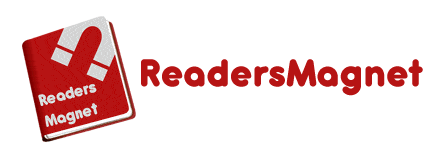For first time authors, it’s understandable if you don’t know how to publish a book. After all, there are more publishing options than ever before! Modern publication, for example, needs an intermediary and an individual publisher — which can take a long time to obtain, which can be of tremendous value in terms of relations with the sector. On the other hand, you might sell your book on Amazon (with better royalties), but you may be struggling to market it yourself.
If you’ve taken the valuable time to write a book that you love and appreciate, it only makes sense to take the time to find the right publisher for your work. If you are sending your book to a small press or self-publishing, you need to closely research prospective publishers before making a choice. There are a variety of publishing models, each with its own advantages and disadvantages. Think ahead and put together a list of questions and wants you to have about your book. Check out which publishers fulfill most of your needs and give the best answers to your questions.
Choosing the right publisher is vital to the process of getting published, and with such a wide variety of markets and publishing options available, it’s critical that authors research those options. If you want to get your book published, you have more choices than ever to accomplish your goal, and the path can be confusing if you’re new to the publishing industry. Here are some vital things to keep in mind when determining the ideal publishing partner for your book.

1. Contracts– Read the contract very carefully. Pay close attention to royalties, advances (if any), costs, and especially your rights.
2. Consider the available choices- The publishing industry is evolving- there’s plenty of mediums and options for authors to invest in their own work.
3. Understand the dynamics of publishing houses-Publishers look at trends in book sales to see if there’s a market for your book. New markets are created all the time, so stay creative and do your research.
4. Maintain open-mindedness- Find a balance between the integrity of your work and the publisher/editor’s improvement potential. The shared goal is to produce a quality book.
5. Have a specific target in mind-Know what you want to go get out of the process in addition to book sales.
6. Consider the sales-Will you have access to sales information? How often is it updated? On the online bookstore, can you see the number of visits or change the book’s listing?
7. Troubleshooting- If you have a problem or a question, is there someone available by email or phone or is there a support area on the website? There should be.
8. Networking-What do other writing professionals think about the company? Talk to professionals in the community and get their honest opinion to help you make an evaluation.
9. Utilize PR-PR is a full-time job that is best done by professionals. Research your publisher’s PR department- they provide credibility, so you don’t have to ‘sell yourself’.
10. Seek professional guidance- Your great ideas could be a success- remember the experience publishers have and take advantage of their skills to complement your own.
As you network with other writers and do your own research, you will also probably develop some needs and questions of your own. After putting in some solid research time, you should be able to choose a publisher with confidence. Remember: if you have a great idea for a book, and you’re willing to work harder and smarter than most, you can almost guarantee that you’ll be able to get it in front of your adoring fans — wherever they are.


Recent Comments